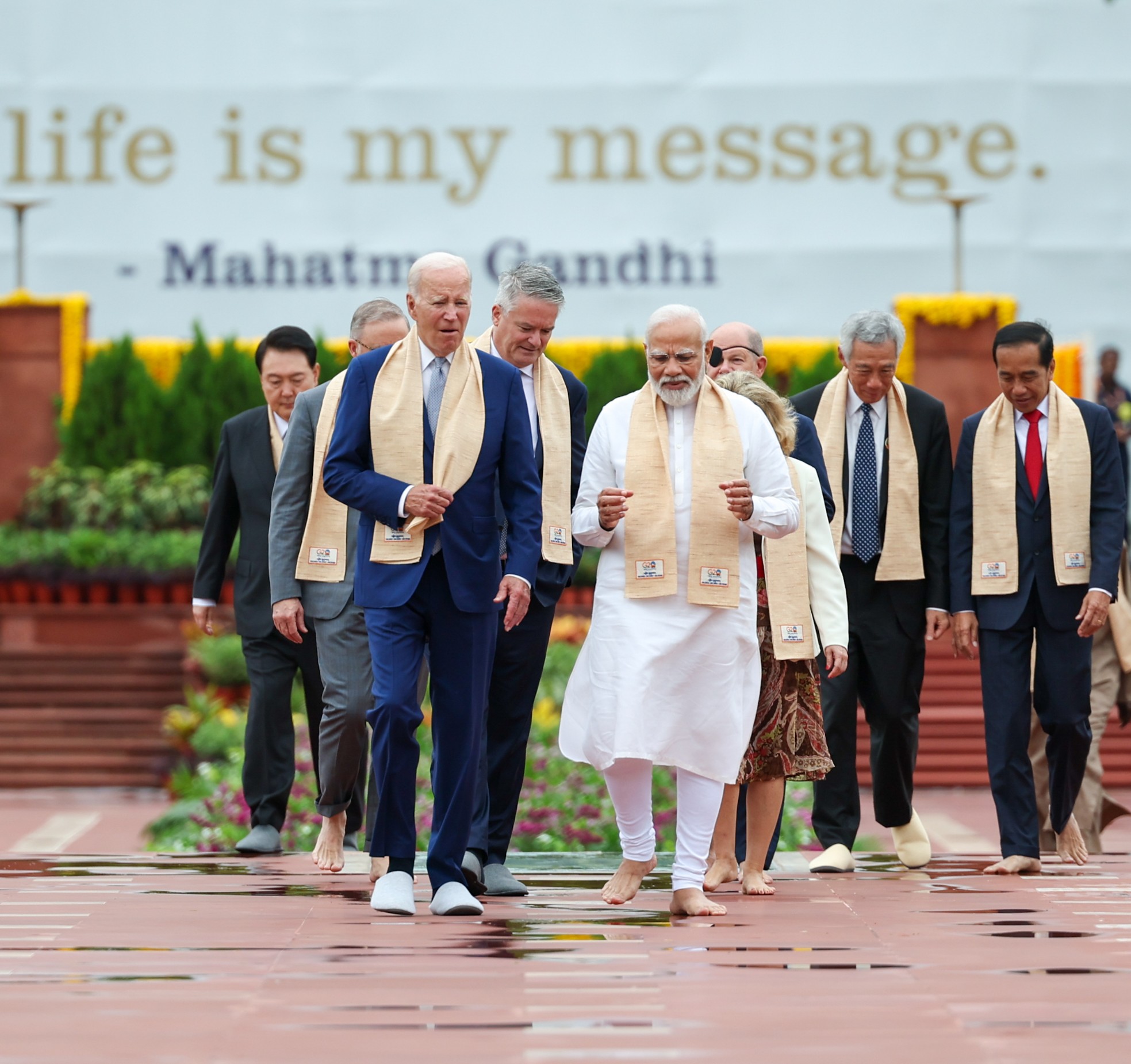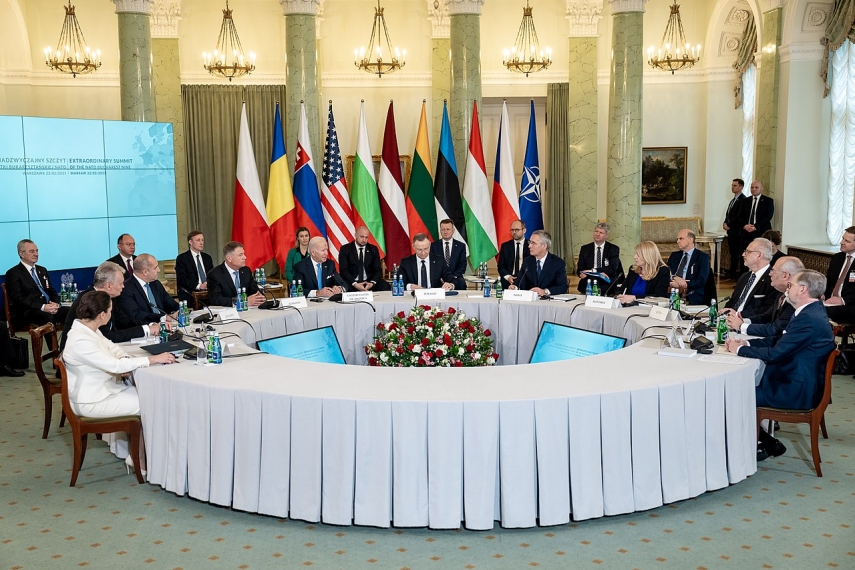
President Biden with PM Modi at Raj Ghat Sept. 10, 2023. PHOTO: X @narendramodiNEW DELHI – President Biden and several other world leaders announced plans here Saturday afternoon for a new rail and shipping corridor that would connect India and Europe through the Middle East, an ambitious proposal aimed at further connecting a volatile region and countering China’s years-long backing of massive infrastructure projects around the world.The announcement solidified a preliminary agreement among a range of participants – including the United States, India, Saudi Arabia, Jordan, Israel, the United Arab Emirates and the European Union – and came as leaders of the world’s largest economies tried to work through divisions on a range of thorny issues.By midafternoon, the leaders here had reached consensus on a 37-page joint declaration on 83 points, several of which referred to Russia’s war in Ukraine. The debate over the war led some to predict that such a statement would prove elusive, particularly given that Russia is a member of the G-20. But they arrived at language that stated that “all...


